Plastic BioPolymers Oil Polyolefins 12-02-2021 - Arhive
Plastic BioPolymers Oil Polyolefins
Crude Oil Prices Trend

-Lotte’s single-use plastic exposure raises risk
The company is exploring collaborations, particularly in areas such as bio-polymers and other high-value chemicals and polymers
LOTTE Chemical Titan Holding Bhd (LCT) is subject to considerable downside risk given its sizeable exposure to single-use plastics.
Maybank Investment Bank Bhd analyst Lee Yen Ling, in a recent note, described the company’s 10% single-use plastics capacity as its “biggest challenge” as more investors turn to sustainable products and services.
Lee, however, noted that LCT can tap onto its parent Lotte Chemical Corp’s technologies to develop eco-friendly products.
The investment bank said the company is also exploring collaborations, as well as mergers and acquisitions, particularly in areas such as bio-polymers and other high-value chemicals and polymers. The research house maintained its ‘Sell’ recommendation for LCT with a lower target price of RM2.10.
Key upside risks to the bank’s call and earnings forecast include slower than expected capacity expansion in the event some players opt to defer expansion plans in view of the weak market dynamics.
“There is also a persistent shortage of containers and occasional hurricanes in the US which disrupt petrochemicals supply.
“This is followed by faster than expected global economic growth and its 40%-owned associate Lotte Chemical USA Corp delivers stronger than expected operating earnings on better product spreads,” Lee said.
The forecast takes into account the company’s five-year corporate strategy, which embeds sustainability into its business. LCT currently complies with all environmental regulations and requirements in Malaysia and Indonesia.
“It also adopts the Environment Management System and has developed various operational initiatives to reduce its environmental impacts, such as sludge reduction programme and fixed volatile organic compound monitoring system among others,” Lee noted.
The company is exploring new breakthroughs such as converting polyolefin into biodegradable polymer consumers. It is also collaborating with reputable suppliers and consumers to create energy-efficient products.
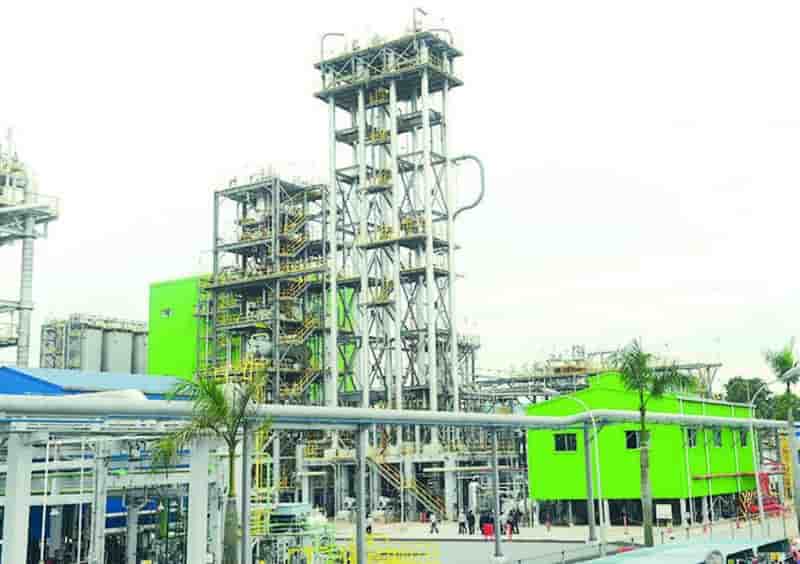
-Radici declares force majeure on adipic acid in Germany
Radici Chimica (Bergamo, Italy) has declared force majeure on the production of adipic acid at its 80,000-metric tons/year plant in Zeitz, Germany, due to extreme cold weather conditions in central Germany, according to Chemweek.
With road and rail transport of hazardous materials suspended due to the extraordinary conditions, adipic acid production “has been seriously affected, and this has forced us to declare force majeure,” said Radici CEO Maurizio Radici in a letter to customers issued on 10 February. The company is currently assessing the amounts of adipic acid it will be able to supply to customers, he said.
Radici started production of adipic acid and nitric acid at its nylon intermediates complex at Zeitz in 2001.
As MRC informed earlier, RadiciGroup is investing EUR15m to purchase a production line for meltblown nonwoven, a material used in protective face masks. The move follows a shortage of the material in Italy. The synthetic fibre producer will manufacture meltblown nonwoven polymer filaments, the key component in personal protective equipment (PPE), saying that current supply in Europe is insufficient to keep up with the heightened demand brought on by the coronavirus pandemic.
We remind that Russia’s output of chemical products rose in November 2020 by 9.5% year on year. At the same time, production of basic chemicals increased in the first eleven months of 2020 by 6.6% year on year, according to Rosstat’s data. According to the Federal State Statistics Service of the Russian Federation, polymers in primary form accounted for the greatest increase in the January-November 2020 output. November production of polymers in primary form rose to 896,000 tonnes from 852,000 tonnes in October. Overall output of polymers in primary form totalled 9,240,000 tonnes over the stated period, up by 17.1% year on year.

-NGR expands liquid state polycondensation plant
To meet the growing need for post-consumer PET, Next Recyclingmaschinen (NGR) is to make a further liquid state polycondensation (LSP) plant available for demonstration and testing purposes from March 2021.
In the NGR process, all impurities are removed from the PET melt already in the liquid phase to such an extent that the necessary requirements for food packaging, including water bottle grade, are achieved. The process is said to produce EFSA- and FDA-compliant products. Plastic BioPolymers Oil Polyolefins
Compared to conventional systems, the NGR process offers an energy-efficient and, in terms of melt quality, better physical cleaning process, according to the company. The intrinsic viscosity (IV) is constantly measured and adjusted to the customer’s target value via automated control of the vacuum unit. This makes it possible to finely tune the material quality to the customer’s product specifications, including ultra-tight IV control, which is essential for downstream production.
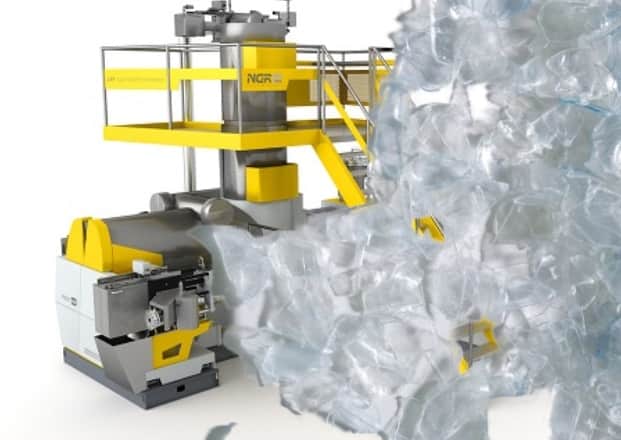
-ExxonMobil introduces Paxon SP5504 HDPE for blow moulded bottles and containers
ExxonMobil has developed a new Paxon HDPE grade, SP5504, which offers a paradigm shift in the properties normally associated with the currently available unimodal HDPE resins.
ExxonMobil introduces Paxon SP5504 HDPE for blow moulded bottles and containers
Offering a step-change in ESCR (Environmental Stress Cracking Resistance) performance without compromising stiffness, impact, top load performance, or processability, Paxon SP5504 is suitable for household and industrial chemical (HIC) bottles and containers. Plastic BioPolymers Oil Polyolefins
Dr James Stern, HDPE Business Development Manager, North America and EMEAF, ExxonMobil, said: “Until now, converters have often had to compromise to get the right ESCR performance of blow moulded HDPE bottles and containers, but, because there is no compromise in density or melt index, Paxon SP5504 enables converters to create cost-effective, innovative packaging solutions for household and industrial chemicals.”
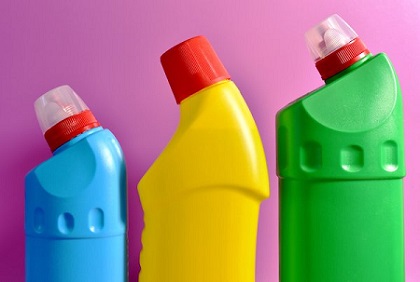
-Sidel presents NUUK, the new rPET water bottle concept inspired by Greenland
Sidel’s art designers have created the NUUK bottle concept, drawing inspiration from the purity of ice and its formations. The NUUK brand takes its name from Greenland’s capital and the fjords that make it famous. The “Frozen, Authentic, Unique” slogan highlights the brand’s attributes, which are closely linked to water and its features. Produced from clear, 100% recycled PET (rPET), NUUK is a container designed for high-quality, fjord-sourced premium water brands.
With its pure, sophisticated and distinctive design, the 500 ml bottle showcases the water it contains and reflects the brand’s essence. Thanks to its asymmetric shape, NUUK stands out on the shelves, putting traditional water bottle designs in the shade. Plastic BioPolymers Oil Polyolefins
An authentic frozen bottle arising from the ice
“The specific ice shape on the lower part of the bottle constitutes a great asset and reinforces its structure. It gives the impression that the bottle is surging up from the ice,” explains Laurent Lepoitevin, Packaging Design Engineer at Sidel. In line with its origins, the deep bottle base resembles a rock glacier and is produced by Sidel’s patented Base Over Stroke System (BOSS).
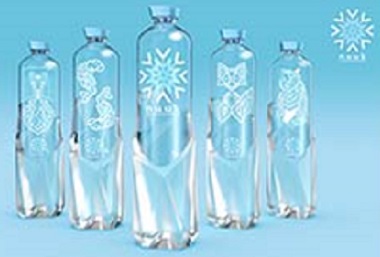
-French extrusion specialist forms recycling division / Acquisition of GeboPlast
Extrusion blow moulder and injection moulder Corplex (Kaysersberg / France; www.corplex.com) wants to drive forward the development of an in-house recycling division and pave the way for entering a plastics recycling economy with the takeover of PET recycler GeboPlast (Muhlbach sur Bruche / France; www.schroll.fr/en/plastics-processing). Plastic BioPolymers Oil Polyolefins
The globally active plastic experts from Alsace took over GeboPlast on 1 January 2021. The acquisition is ideal, writes Corplex in a press release, because it fulfils two important requirements for the investor: The recycling company, founded in 1977, is also based in Alsace and has two branches there. In addition, GeboPlast, with its activities in shredding, compounding, pellet production and disinfection, brings exactly the expertise that was hoped for in the new Corplex recycling division.

-Recon Polymers and Tetra Pak innovate
New technology recycles all components of beverage cartons
With the active support of Tetra Pak, Recon Polymers BV, a Dutch environmentally-aware start-up located in Roosendaal, has developed an innovative solution to recycle all components from beverage cartons. This innovative process secure the recycling of the plastic and aluminum mix coming from the recycling of used beverage cartons in Europe.
Recycling of plastic and aluminum
The average beverage carton comprises around 75% paperboard, 20% plastic and 5% aluminum foil. While the recovery of fibres during the recycling process is already well established and has a healthy market to convert into high-quality paper pulp for use in both industrial and consumer products, the same is not true yet for the plastic and aluminum mix. Plastic BioPolymers Oil Polyolefins
With this new, innovative technology, Recon Polymers is converting the extracted plastic and aluminum mix into raw materials for applications within the plastic industry. Through this new process, Recon Polymers separates the caps, mainly made of HDPE plastic, and the layers, mainly LDPE plastic. The recovered plastics from the caps enter into existing end-markets for recycled HDPE, such as non-food bottles, pipes, recycling bins, etc.

-Milestone: feedstock recycling collaboration demonstrates feasibility Carboliq process
The collaboration announced last year between film and packaging producer Südpack and Recenso, the developer of the Carboliq chemical recycling process has yielded its first tangible results: a truckload of oil.
The goal of the collaboration was to recycle reusable ‘unrecyclable’ materials on an industrial scale using the Carboliq process, in a bid to establish further closed loops in the packaging industry. As a leading manufacturer of these high-tech films, Südpack is particularly committed to sustainability. At the same time, investing in a strategic collaboration of this kind would contribute importantly to optimising Südpack’s material management. Plastic BioPolymers Oil Polyolefins
Next to Recenso and Südpack, a third partner has been added to the collaboration. To better reach and respond to the fast-growing market for recycled materials, Rotterdam-based Count Energy Trading has been named the exclusive sales partner for the products generated through the technology. Count is experienced in handling and trading commodities in the energy and renewables industries and can offer a full pallet of services including logistics, storage, arbitrage, financials, and sustainability guidance in the market.
Carboliq technology is based on a process of Catalytic Tribochemical Conversion (CTC) – a one-stage direct liquefaction process, that involves the combined application of thermal, catalytic and mechanochemical mechanisms. CTC is applied at atmospheric pressure and at process temperatures below 400 °C. The process, during which almost no gasses are formed, produces a high ratio of oil, which is collected in a condensing system. Briquets, suitable for roast firing applications, are made from the residues.
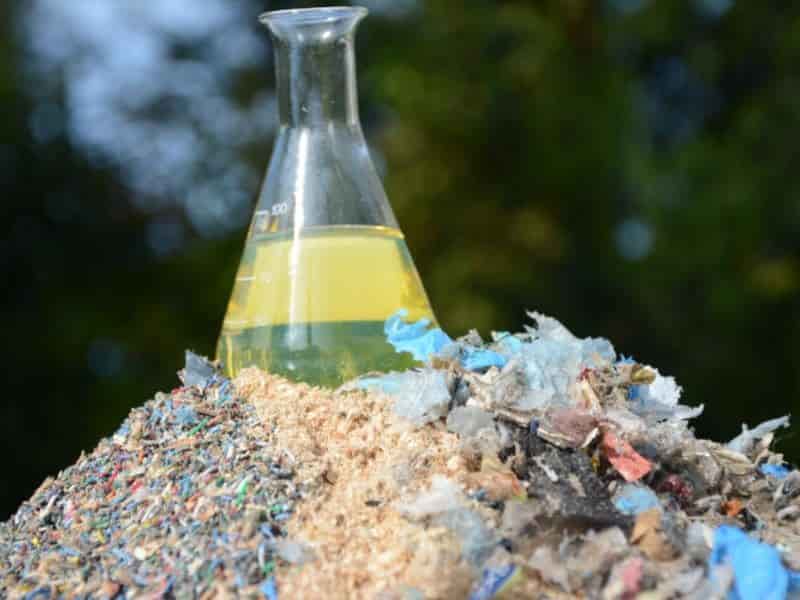
-First phase of Shintech’s US PVC chain expansion slated to be finished by mid-2021
HIGHLIGHTS
- COVID-related work slowdowns delayed construction
- PVC demand expected to grow steadily: Shin-Etsu
Shintech expects to finish the first phase of an expansion across the polyvinyl chloride chain at its Louisiana complex by mid-2021, later than expected, company parent Shin-Etsu said. Plastic BioPolymers Oil Polyolefins
Shin-Etsu originally expected to finish construction on the first phase by the end of 2020, put pushed it to Q1 2021 after coronavirus pandemic-related work slowdowns. Executives told investors in late January that construction should be complete by mid-2021, according to a transcript posted on Shin-Etsu’s website Feb. 8.
The expansion’s $1.49 billion first phase will increase output at the company’s PVC plant in Plaquemine, Louisiana, by 48% to 890,000 mt/year. Shintech also will increase vinyl chloride monomer capacity by 34% to 2.37 million mt/year, and increase caustic soda output by 21% to 1.55 million mt/year.
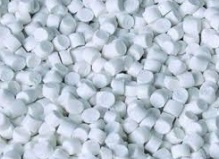
-Toray’s Eco Textile Offers Hand Of Traditional Japanese Paper
Toray Industries has launched a new poly filament fabric called Camifu that “combines the softness, smoothness and comfort of synthetic fibers with the natural feel and random unevenness of traditional Japanese paper,” said the brand.
Camfu can be used for various apparel applications for men’s and women’s clothing, including outerwear. Toray will commercialize Camfu beginning with the SS22 season.
Unlike conventional fabrics, Camifu “can match the Japanese paper features that inspired it” because it uses Nanodesign, Toray’s conjugate spinning technology, to develop a “flat C cross-sectional shape that delivers a precise arrangement of three different polymers.” Plastic BioPolymers Oil Polyolefins
Toray has “arranged polymers with different heat shrinkage properties in special shapes on the left and right of a flat cross-section, with a soluble polymer in the fiber’s center.” The heat-treated polymers on the left and right side of the fiber bend along with it. And with a flat shape, it offers a “unique twist and stretch.”
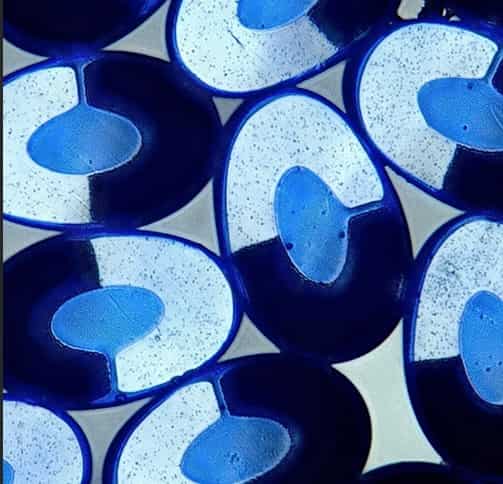
-Vietnamese apparel made with S. Korean fabric to enjoy lower tariffs in Europe
Apparel and clothing items produced in Vietnam with South Korea-made fabrics will be allowed to enjoy lower tariffs in the European Union, the trade ministry said Monday.
Previously, clothes needed to be made with locally produced fabrics in order to enjoy the benefits of the Vietnam-EU free trade agreement, according to the Ministry of Trade, Industry and Energy. Plastic BioPolymers Oil Polyolefins
“With South Korea being the second-largest supplier of fabric in Vietnam, the latest policy will lead to stronger demand for South Korean products, compared with other rivals such as China and Taiwan,” the ministry said in a statement.
Vietnam relies on imports for 80 percent of its demand for textiles.
In 2019, China accounted for 55 percent of Vietnam’s imports of fabrics, trailed by South Korea and Taiwan with 16 percent and 12 percent, respectively. Japan accounted for 6 percent.
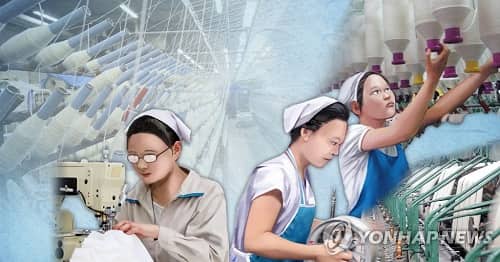
-Anti-dumping duties on polypropylene: Govt may challenge WTO verdict
The government is considering to file an appeal against the ruling of a World Trade Organisation (WTO) panel that ruled in favour of the United Arab Emirates (UAE) last month in a case that sought cancellation of anti-dumping duties imposed on the import of polypropylene.
According to a senior official of National Tariff Commission (NTC), Pakistan imposed duties on the import of biaxially oriented polypropylene (BOPP) in 2013 at the rate of 29.70 percent on one UAE company, Taghleef Industries, and 57.09 percent on the rest of the UAE exporters. Plastic BioPolymers Oil Polyolefins
“The government could decide to go for a review within the next couple of months,” the NTC official said on condition of anonymity.
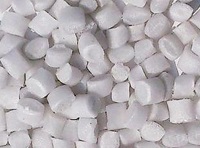
Plastic BioPolymers Oil Polyolefins
